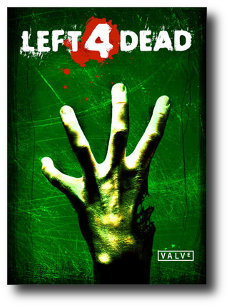Big Brother Is Actually Not Watching You At All
![]()
 Nine
girls were trapped in a big house in Turkey, their every move filmed
for the titalation of their captors. Not recently. This was about a month ago. I’m
only mentioning it now because a month ago
my brain wasn’t working. Back then,
I just thought, “That… irony… blog.” That’s as far as I got. But I’m feeling better now,
thanks for asking.
Nine
girls were trapped in a big house in Turkey, their every move filmed
for the titalation of their captors. Not recently. This was about a month ago. I’m
only mentioning it now because a month ago
my brain wasn’t working. Back then,
I just thought, “That… irony… blog.” That’s as far as I got. But I’m feeling better now,
thanks for asking.
So the interesting part is that the girls thought they were on Big Brother. According to reports:
…the women were not abused or harassed sexually, but were told to fight each other, to wear bikinis, and to dance by the villa’s pool.
Upon discovering this was not for a national TV audience but just a couple of horny old men who owned the house (I’m guessing), the girls reacted badly. Apparently they demanded to be released. But they’d signed contracts, promising to stay for at least two months, and the contracts had some pretty serious penalty clauses: tens of thousands of dollars if the girls left early. I guess you call that a pay or play deal.
The girls took the position they’d been duped, so they were essentially being kidnapped. When the police found out, they agreed.
Me, I’m not so sure. It seems the girls’ main objection is that while they were wearing bikinis, dancing by the pool, and talking about their most embarrassing sexual experiences (I’m guessing), not enough people were watching. These degrading, exploitative acts they were pressured to perform, they weren’t broadcast on prime-time. The problem was there was no fame. The mother of one of the girls said:
We were not after the money but we thought our daughter could have the chance of becoming famous if she took part in the contest. But they have duped us all.
Being watched by two sleazy guys wasn’t enough. If it were millions of sleazy guys, that would be okay. But two? That’s sick.
Zombies Are For Grown-Ups: Why Banning Video Games Makes Them More Violent
![]()
 I’m
a parent. I also like to slay zombies. Lately, my wife and I have spent
nights side-by-side, mowing down hordes of gibbering undead with automatic
weapons. Sometimes we blow them up with pipe bombs, or set them on fire.
We don’t go looking for them. They rush at us out of darkened city alleys.
They break through doors. It’s us or them.
I’m
a parent. I also like to slay zombies. Lately, my wife and I have spent
nights side-by-side, mowing down hordes of gibbering undead with automatic
weapons. Sometimes we blow them up with pipe bombs, or set them on fire.
We don’t go looking for them. They rush at us out of darkened city alleys.
They break through doors. It’s us or them.
I’m talking of course about the computer game Left 4 Dead. It has a sequel, due out next month, which looks similar—so similar, in fact, there is a protest by Left 4 Dead fans that it should be a free update, not a new full-price game. The main difference seems to be that it has hand weapons, inviting players to bludgeon zombies with baseball bats, chop them up with axes, and dismember them with chainsaws.
This was too much for the Australian Classifications Board, which ruled that the game’s “unrelenting violence” was “unsuitable for a minor to see or play.” Of particular concern were those hand weapons, which:
…cause copious amounts of blood spray and splatter, decapitations and limb dismemberment, as well as locational damage where contact is made to the enemy which may reveal skeletal bits and gore.
Australia has no adults-only classification for video games: all games must be qualify for MA15+ or lower to be allowed on sale. (We are, apparently, the only developed democracy in the world without an 18+ category for games.) The chief advocate of this position is South Australian attorney general Michael Atkinson, who responded to the banning of Left 4 Dead 2 by saying: “It certainly does restrict choice to a small degree, but that is the price of keeping this material from children and vulnerable adults. In my view, the small sacrifice is worth it.”
I’m not quite sure what he means by “vulnerable adults.” Possibly Atkinson thinks there is a class of grown-ups who really aren’t: who should be treated like children their entire lives. Possibly this class includes adults who like to play video games.
But that’s not the point. The point is what happened next: the game developer, like other developers before it, deleted some of the gorier parts and resubmitted it. The Australian Classifications Board noted that “large and frequent blood splatters are seen,” but now “dead bodies and blood splatter disappear as they touch the ground.” You can still rip zombies to pieces with a chainsaw, but “no wound detail is shown.” It was awarded an MA15+ classification (meaning 14 year olds and younger require a guardian present), tagged: “Strong bloody violence.”
Instead of Australia having a violent, bloody computer game restricted to adults, it will have a violent, not-quite-as-bloody game on sale to children. This is the effect of our law: to take content that was designed for adults and tweak it until it scrapes under the MA15+ bar. We’re making available to children material they would not otherwise see, clustered at the extreme end of what is acceptable.
Left 4 Dead comes with a developers’ commentary audio track, like a DVD. (The industry has grown up: popular titles cost as much to produce as blockbuster films, are promoted as heavily, and generate as much revenue, or more.) You can hear the designers describe how they used sound, light, and dramatic techniques to create an atmosphere of dread. How each zombie has a unique face and behavior: sometimes they wander around, or sit, or put their faces in their hands and sob. When they die, their flailing movements are based on a motion-captured stunt man, to look more realistic.
We need to worry less about 15-year-olds seeing “wound detail” and more about immersing them in an environment of unmitigated horror. The most shocking films and books are not merely graphic, they are suggestive. Even the most explicit horror movies chill primarily not because of what they depict, but what they might. Any storyteller knows: the monster is scarier before it’s revealed. There is more to terror than blood.
So far this debate has been framed as an argument between protecting children and upholding adults’ freedom of choice. We’re doing neither.

















































 17 comments
17 comments